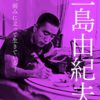
いい本だと思います。東北大震災の約一年後に出版された本ですが、著者は2004年から釜石市の危機管理アドバイザーを行っており、防災教育も行ってきた結果としての震災の結果と教訓です。内容は震災前の講演を中心としていて、著者の苦悩ぶりが覗えます。
子どもたちに教えていた「避難の三原則」です。
その一「想定にとらわれるな」
「端的に言えば「ハザードマップを信じるな」ということです。」(P.60)
そこには、浸水想定区域が載っていますが、その「想定」とは何でしょうか。水害、浸水、地震・・・様々な自然災害(そして人為的災害も)に対して、国や地方自治体、企業などが「想定外」という言葉を使っています。特にこの1,2年多いような気がします。まるで想定外であれば「責任」が回避できるかのようです。その想定とは、予測できるものという意味ですが、問題は予測の範囲です。「絶対」にありません、とは言えません。交通事故だってあるし、津波だってかならず来る。台風も来る。宝くじも当たることがある(笑)。
99.99・・・%なくても。自然災害では雨に伴う洪水であれば予測される最大の雨量、例えば100年間で最大どのくらいの雨が予想できるかということを元に河川の整備が行われてきました。では、どこまで予測すればいいのでしょうか。多分、統計学を使えば「何mmは何%」とか数値化されるでしょう。津波は、記録に残る最大のものは80メートル以上だそうです。では、90メートルの防潮堤を日本の海岸線に張り回らせばいいでしょうか。それも「不可能」ではありません。そのような津波が来ることが絶対ないとは言えないと同じように。1メートル以下の津波は結構来ています。ですから、1メートルの防潮堤でほとんどの津波は防げています。それはとてもいいことだと思います。でも、津波は不確定要素が多い。第一波より第二波、第三波が大きいこともあります。局所的に高くなる所もあります。警報・注意報は区切られた一定の地域の最大値を予測しますが、その中で高い津波になる所とそうではない所があります。
森達也氏は「驚異はリスク(危機的状況の度合い)とハザード(実際の危険性や有害度)に分けることができる」と言っています(「新型コロナウィルスと私たちの社会」P.323)。「例えばマムシはハザードが大きい。・・・(しかし)マムシと都市部で遭遇する可能性はとても低い。つまりリスクは圧倒的に小さい。この二つを冷静に見きわめることができなくなったとき、不安と恐怖が増殖して極端なセキュリティ社会が発動する。」(同)津波や地震の場合は逆です。その理由を著者は「人間というのは、都合の悪い話は積極的に考えようとしないから」だといいます(P.80。宝くじと交通事故の話。「正常化の偏見」)。だから、大きな地震が来たら避難勧告や津波警報、あるいはハザードマップに左右されることなく避難する「命を守る主体性」が大切だと。情報を待っている時間はないかもしれません。大きな津波が来そうな大きな地震は一生の間にそう何回も来るわけではありません。「想定を上げる」ことより、そのときだけは一生懸命逃げましょう、と言うわけです。
正常化の偏見。たしかに、「人間は、自分の死を直視できない」(P.80)かもしれません。でも、本能が壊れた動物である人間の意識は、社会的に作られるものです。意識が言葉でできている以上当然です。私は、「災害過保護状態の住民」「逃げない住民」「認知不協和」「人為的に高める安全は、人間の脆弱性を高める」「過剰な行政依存」というのは、人間に備わったものではなくて人間が生きている社会の問題だと思います。特に行政の問題は、社会的な問題にほかなりません。動物が地震の前触れを捉えて避難することは聞いたことがあると思います。私たちにもそういう感覚はあるはずです。それが発揮できないということが社会的だということです。
その二「最善を尽くせ」
最善というのは、それ以上の対応ができないということだ。・・・その君の力をしのぐような大きな自然の力があれば、死んでしまう。それが自然の摂理なんだ」(P.63)
その三「率先避難者たれ」
現政権の「自助、共助、公助」発言についてネットでは「順番が違う。公助、共助、自助ではないか。政府は自らの責任を放棄している」というツイッターがありました。政府が責任を放棄しているのは「(コロナの行方は)神のみぞ知る」という大臣の発言でも明らかです。でも、なにかそのツイッターには違和感がありました。著者は堤防、防波堤、ハザードマップ、災害情報などが住民の危機意識を鈍らせているともいいます。行政は何事かを行って責任を負わないことに必死です。やっている姿勢(やっている感)は見せなくてはできません。でも、何をやっても(あるいはやればやるほど)津波警報が出たとしても最後に避難するかどうかは本人の判断です。逃げなくて死んでしまっては元も子もないのです。福島の原発事故の処理や今後の原発稼働、避難した人の支援は行政の問題です。でも原発事故自体は「想定外」ではないし、そこで原発を稼働させたのは地域の人、国民全体の責任だと思います。
なぜ、行政に依存してしまうのでしょうか。それは制度の問題です。私たちは選挙によって行政の執行者を選びます(実際は立法者を選んでいるのですが、選ばれた人が行政者を選びます)。「選ぶ」という行為を行った後は、行政はその人たちに任せて自分は行政を行う必要から免除されます。まるで自分の権利をその人達に「譲った」かのように。そして自分という個人は行政の前では小さく感じています。でもそうでしょうか。そもそも自分の権利(人権)は「譲る」ことができるでしょうか。今の世の中では何でも売ることができるように思われています。でも、権利を売って(譲って)しまってはその人は「奴隷」になってしまいます。実際、借金で身を「売ったり」破滅したりする人は後を絶ちません。でも、自分の権利、人権、「生きていること」を売ることが「できる」社会の仕組み自体がおかしいと私は思うのです。行政に対する依存は近代経済(社会)のアイロニーに過ぎません。
確かに、私たちは個人では津波の予想をすることはできません。ですから、行政、あるいは科学に頼るしかありません。ところが、津波を完全に予想し住民に周知をすることはできません。科学・技術は自然の前ではほぼ無力なのです。科学は時間を止めて客観視をすることしかできないので、今私がどう行動するべきかを説明してくれるものではないのです。だからこそ私たちは「自由」であるのであり、自由であるからこそ「不安」でもあるのです。ですから、行政が何をするか、どのような情報を提供してくれるのかを待っていてはいけないのです。常に行政を監視し、行政の言うことを批判的な目で見続けなければなりません。それが可能であること自体が権利の譲渡の不可能性の証明なのです。
とはいっても、社会が変わる(社会を変える)まで何もしないということにはなりません。津波も地震も大雨も今日、「今」来るかもしれないのです。そういう状況では著者のように「内発的な自助」あるいは「共助」を作っていくしかありません。多分、そのことは自覚を促し、この社会の仕組みそのものを変えていく基礎になっていくでしょう。
⟨impressions⟩
I think it's a good book. This book was published about a year after the Great Tohoku Earthquake, but the author has been a crisis management advisor for Kamaishi City since 2004, and the results and lessons learned from the disaster as a result of conducting disaster prevention education. The content is centered on the lecture before the earthquake, and you can see the author's distress.
These are the "three principles of evacuation" that I taught children.
Part 1 "Don't get caught up in assumptions"
"In short, don't believe in hazard maps." (P.60)
There is an estimated inundation area, but what is the "assumed"? Floods, inundation, earthquakes ... For various natural disasters (and man-made disasters), the national government, local governments, companies, etc. use the word "unexpected". Especially, I feel that it has been more than a year or two. It's as if "responsibility" can be avoided if it is unexpected. That assumption means something that can be predicted, but the problem is the scope of the prediction. It cannot be said that it is not "absolutely". There are traffic accidents, and tsunamis always come. A typhoon is coming. Sometimes I win the lottery (laughs).
99.99 ・ ・ ・ without%. In natural disasters, river maintenance has been carried out based on the maximum amount of rain that can be predicted if it is a flood caused by rain, for example, the maximum amount of rain that can be predicted in 100 years. So how much should we predict? Perhaps, using statistics, it will be quantified as "what mm is what%". The largest tsunami on record is over 80 meters. Then, should we run a 90-meter seawall around the coastline of Japan? That is not "impossible" either. Just as it cannot be said that such a tsunami will never come. There are quite a few tsunamis of less than 1 meter. Therefore, most tsunamis can be prevented with a 1-meter seawall. I think that's a very good thing. However, the tsunami has many uncertainties. The second and third waves may be larger than the first wave. There are also places where it rises locally. Warnings and warnings predict the maximum value of a certain divided area, but some of them have high tsunamis and some do not.
Tatsuya Mori says that "wonders can be divided into risks (degree of crisis) and hazards (actual danger and harm)" (" New Coronavirus and Our Society " P.323). "For example, pit vipers have a large hazard .... (But) it is very unlikely that you will encounter pit vipers in urban areas. That is, the risk is overwhelmingly small. When you cannot calmly distinguish between the two, you are anxious. The fear grows and an extreme security society is activated. ”(Same as above) The opposite is true in the case of a tsunami or earthquake. The author says that the reason is that "human beings do not actively think about inconvenient stories" (P.80. Lottery and traffic accidents. "Normalization prejudice"). Therefore, when a big earthquake hits, it is important to have an evacuation advisory, a tsunami warning, or "independence to save lives" to evacuate without being influenced by hazard maps. You may not have time to wait for information. A big earthquake that is likely to be a big tsunami does not come so many times in a lifetime. Rather than "raising your assumptions," you should try your best to escape only then.
Prejudice of normalization. Certainly, "humans cannot look directly at their own death" (P.80). But human consciousness, an animal with a broken instinct, is socially created. It is natural as long as consciousness is made up of words. I think that "residents who are overprotective from disasters," "residents who cannot escape," "cognitive dissonance," "artificially increased safety increases human vulnerability," and "excessive administrative dependence" are inherent in humans. I think it's not a thing, but a problem of the society in which humans live. In particular, administrative issues are nothing but social issues. You may have heard that animals catch the harbinger of an earthquake and evacuate. We should have that kind of feeling. It is social that it cannot be demonstrated.
Part 2 "Do your best"
Part 3 "Leading evacuees"
Regarding the current administration's "self-help, mutual assistance, public assistance" remarks, there was a Twitter account on the Internet saying, "The order is different. Isn't it public assistance, mutual assistance, self-help? The government has abandoned its responsibility." It is clear from the minister's remark that "(Corona's whereabouts) is known only to God" that the government has abandoned responsibility. However, there was something wrong with that Twitter. The author also says that embankments, breakwaters, hazard maps, disaster information, etc. are blunting residents' awareness of crisis. The administration is desperate to do something and not take responsibility. You have to show the attitude you are doing (the feeling you are doing). However, no matter what you do (or the more you do), even if a tsunami warning is issued, it is up to you to decide whether to evacuate at the end. If you die without running away, you will not have any children. Handling the Fukushima nuclear accident, operating the nuclear power plant in the future, and supporting evacuees are administrative issues. However, the nuclear accident itself is not "unexpected", and I think it is the responsibility of the local people and the people as a whole to operate the nuclear power plant there.
Why do you depend on the administration? It's an institutional issue. We choose the executive branch by election (actually, we choose the legislator, but the chosen person chooses the executive branch). After performing the act of "choosing", the administration is left to those people and they are exempt from the need to administer. It's as if you "yielded" your rights to them. And I feel small in front of the administration. But is that so? Is it possible to "transfer" one's rights (human rights) in the first place? It seems that anything can be sold in the world today. However, if you sell (yield) your rights, you become a "slave." In fact, there is no end to the people who "sell" or ruin themselves with debt. However, I think that the mechanism of society that "can" sell one's rights, human rights, and "living" is strange. Dependence on administration is nothing more than the irony of the modern economy (society).
To be sure, we cannot personally predict a tsunami. Therefore, we have no choice but to rely on government or science. However, it is not possible to completely anticipate the tsunami and inform the residents. Science and technology are almost powerless in front of nature. Science can only stop time and be objective, so it doesn't explain how I should act now. That is why we are "free", and because we are free, we are also "anxiety." So don't wait for what the government will do and what information it will provide. We must constantly monitor the administration and keep a critical eye on what it says. The fact that it is possible is itself a proof of the impossibility of transfer of rights.
However, it does not mean that we will not do anything until the society changes (changes the society). Tsunamis, earthquakes and heavy rains may come "now" today. In such a situation, there is no choice but to create "intrinsic self-help" or "mutual help" like the author. Perhaps that will raise awareness and become the basis for changing the very structure of this society.
I think it's a good book. This book was published about a year after the Great Tohoku Earthquake, but the author has been a crisis management advisor for Kamaishi City since 2004, and the results and lessons learned from the disaster as a result of conducting disaster prevention education. The content is centered on the lecture before the earthquake, and you can see the author's distress.
These are the "three principles of evacuation" that I taught children.
Part 1 "Don't get caught up in assumptions"
"In short, don't believe in hazard maps." (P.60)
There is an estimated inundation area, but what is the "assumed"? Floods, inundation, earthquakes ... For various natural disasters (and man-made disasters), the national government, local governments, companies, etc. use the word "unexpected". Especially, I feel that it has been more than a year or two. It's as if "responsibility" can be avoided if it is unexpected. That assumption means something that can be predicted, but the problem is the scope of the prediction. It cannot be said that it is not "absolutely". There are traffic accidents, and tsunamis always come. A typhoon is coming. Sometimes I win the lottery (laughs).
99.99 ・ ・ ・ without%. In natural disasters, river maintenance has been carried out based on the maximum amount of rain that can be predicted if it is a flood caused by rain, for example, the maximum amount of rain that can be predicted in 100 years. So how much should we predict? Perhaps, using statistics, it will be quantified as "what mm is what%". The largest tsunami on record is over 80 meters. Then, should we run a 90-meter seawall around the coastline of Japan? That is not "impossible" either. Just as it cannot be said that such a tsunami will never come. There are quite a few tsunamis of less than 1 meter. Therefore, most tsunamis can be prevented with a 1-meter seawall. I think that's a very good thing. However, the tsunami has many uncertainties. The second and third waves may be larger than the first wave. There are also places where it rises locally. Warnings and warnings predict the maximum value of a certain divided area, but some of them have high tsunamis and some do not.
Tatsuya Mori says that "wonders can be divided into risks (degree of crisis) and hazards (actual danger and harm)" (" New Coronavirus and Our Society " P.323). "For example, pit vipers have a large hazard .... (But) it is very unlikely that you will encounter pit vipers in urban areas. That is, the risk is overwhelmingly small. When you cannot calmly distinguish between the two, you are anxious. The fear grows and an extreme security society is activated. ”(Same as above) The opposite is true in the case of a tsunami or earthquake. The author says that the reason is that "human beings do not actively think about inconvenient stories" (P.80. Lottery and traffic accidents. "Normalization prejudice"). Therefore, when a big earthquake hits, it is important to have an evacuation advisory, a tsunami warning, or "independence to save lives" to evacuate without being influenced by hazard maps. You may not have time to wait for information. A big earthquake that is likely to be a big tsunami does not come so many times in a lifetime. Rather than "raising your assumptions," you should try your best to escape only then.
Prejudice of normalization. Certainly, "humans cannot look directly at their own death" (P.80). But human consciousness, an animal with a broken instinct, is socially created. It is natural as long as consciousness is made up of words. I think that "residents who are overprotective from disasters," "residents who cannot escape," "cognitive dissonance," "artificially increased safety increases human vulnerability," and "excessive administrative dependence" are inherent in humans. I think it's not a thing, but a problem of the society in which humans live. In particular, administrative issues are nothing but social issues. You may have heard that animals catch the harbinger of an earthquake and evacuate. We should have that kind of feeling. It is social that it cannot be demonstrated.
Part 2 "Do your best"
Part 3 "Leading evacuees"
Regarding the current administration's "self-help, mutual assistance, public assistance" remarks, there was a Twitter account on the Internet saying, "The order is different. Isn't it public assistance, mutual assistance, self-help? The government has abandoned its responsibility." It is clear from the minister's remark that "(Corona's whereabouts) is known only to God" that the government has abandoned responsibility. However, there was something wrong with that Twitter. The author also says that embankments, breakwaters, hazard maps, disaster information, etc. are blunting residents' awareness of crisis. The administration is desperate to do something and not take responsibility. You have to show the attitude you are doing (the feeling you are doing). However, no matter what you do (or the more you do), even if a tsunami warning is issued, it is up to you to decide whether to evacuate at the end. If you die without running away, you will not have any children. Handling the Fukushima nuclear accident, operating the nuclear power plant in the future, and supporting evacuees are administrative issues. However, the nuclear accident itself is not "unexpected", and I think it is the responsibility of the local people and the people as a whole to operate the nuclear power plant there.
Why do you depend on the administration? It's an institutional issue. We choose the executive branch by election (actually, we choose the legislator, but the chosen person chooses the executive branch). After performing the act of "choosing", the administration is left to those people and they are exempt from the need to administer. It's as if you "yielded" your rights to them. And I feel small in front of the administration. But is that so? Is it possible to "transfer" one's rights (human rights) in the first place? It seems that anything can be sold in the world today. However, if you sell (yield) your rights, you become a "slave." In fact, there is no end to the people who "sell" or ruin themselves with debt. However, I think that the mechanism of society that "can" sell one's rights, human rights, and "living" is strange. Dependence on administration is nothing more than the irony of the modern economy (society).
To be sure, we cannot personally predict a tsunami. Therefore, we have no choice but to rely on government or science. However, it is not possible to completely anticipate the tsunami and inform the residents. Science and technology are almost powerless in front of nature. Science can only stop time and be objective, so it doesn't explain how I should act now. That is why we are "free", and because we are free, we are also "anxiety." So don't wait for what the government will do and what information it will provide. We must constantly monitor the administration and keep a critical eye on what it says. The fact that it is possible is itself a proof of the impossibility of transfer of rights.
However, it does not mean that we will not do anything until the society changes (changes the society). Tsunamis, earthquakes and heavy rains may come "now" today. In such a situation, there is no choice but to create "intrinsic self-help" or "mutual help" like the author. Perhaps that will raise awareness and become the basis for changing the very structure of this society.
[出演者(プロフィール)]
片田/敏孝
1960年生まれ。群馬大学大学院工学研究科社会環境デザイン工学専攻教授。同大学「広域首都圏防災研究センター」センター長。専門は災害社会工学。災害への危機管理対応、災害情報伝達、防災教育、避難誘導策のあり方等について研究するとともに、地域での防災活動を全国各地で展開している(本データはこの書籍が刊行された当時に掲載されていたものです)
小中学生の生存率、九九.八%(学校管理下では一〇〇%)。東日本大震災で大津波に襲われた岩手県釜石市で、子どもたちはなぜ命を守ることができたのか。そこには、震災前から地道に積み重ねられてきた、画期的な「防災教育」の効果があった。本書では、二〇〇四年から釜石市の危機管理アドバイザーを務めてきた著者が、主体的な避難行動を可能にした「防災教育」のノウハウを余すところなく公開するとともに、いつ災害に襲われるかわからない私たちすべてが知っておかなくてはならない「生き残るための指針」を提起する。
「町を歩いていて、一人倒れていたら助けてあげなさい。二人倒れていたら、注意しなさい。三人倒れていたら逃げなさい」(P.53)
[ ISBN-13 : 978-4087206333 ]


